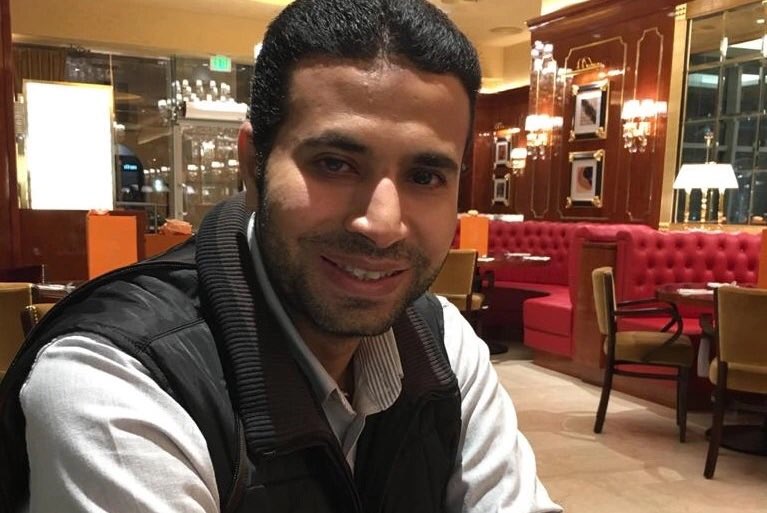Egypt is one of the world’s biggest jailers of journalists, with many spending years behind bars and in solitary confinement without being formally charged or tried.
Egypt has extended the detention of Al Jazeera journalist, Hisham Abdelaziz, for an additional 45 days, the public prosecutor’s office announced on Monday. The latest extension comes despite authorities exceeding the legal period of pretrial detention, the detained journalist’s wife, Samira Eltaher, said on Twitter.
Abdelaziz was arrested in Cairo International Airport on 20 June, 2019, accused of “joining a terrorist group”, an accusation often used by the regime in Cairo to crackdown on journalists and political dissidents. He was then subjected to enforced disappearance for almost a month, when his family and friends were given no information from the security services regarding his whereabouts or condition.
Al Jazeera has slammed the accusations leveled against its employee as “baseless” and called for his immediate release by Egyptian authorities.
Six months after his initial detention, the journalist was released under a $1275 bail, but almost immediately after, he was taken to Cairo’s Hadaiq Al-Qubba police station and detained once again under new allegations.
Last year, Abdelaziz’s health condition worsened after he had glaucoma in his eyes, which required urgent surgery to prevent the complete loss of his eyesight. He also contracted otosclerosis, a condition that could seriously harm one’s hearing ability.
“Al Jazeera Media Network condemns the continuous detention of Abdelaziz and reiterates its call for the immediate release of him and other detained journalists,” said the Qatar-based broadcaster in a statement on 29 November, 2021.
The periodic renewal of one’s detainment is a tactic often used by the Egyptian regime and is typically repeated every 15-to-45 days.
One of the world’s biggest jailers of journalists
Since the 2011 Arab Spring, Al Jazeera journalists have been heavily targeted by the Egypt’s military and security apparatus who are considered to be the vanguards or what analysts describe as ‘the deep state’.
The Al Jazeera bureau was shut down in September 2013 amid political unrest that surfaced as General Abdel Fattah El-Sisi came into power. In July he had launched a military coup that overthrew the country’s first ever democratically elected President, Mohamed Morsi, before ordering the killing of hundreds of protesters and then imprisoning tens of thousands of activists and journalists across the country.
At the time, the Doha-based broadcaster had been providing live, in depth reporting on the ground in Egypt and other countries that witnessed large scale pro-democracy protests, triggering a backlash from several regimes in the region.
Shutting down Al Jazeera was also among the 13 demands presented by Egypt, Saudi Arabia, Bahrain and the UAE during the 2017 blockade on Qatar.
However, following the lifting of the blockade on Doha, Al Jazeera broadcast live from Cairo for the first time in eight years in August 2021—months after the restoration of diplomatic ties between Qatar and Egypt and the signing of the Al Ula declaration.
Despite this, Egyptian security services at the Cairo International Airport arrested another Al Jazeera journalist Rabie Al-Sheikh after he returned home from Qatar on holiday that same month.
Journalist Mahmoud Hussein was also among the most recent detainees from the Qatari broadcaster, but was eventually released in 2021 after more than four years in detention without formal charges or trial.
The ongoing crackdown on journalists affiliated with the channel over the years has amplified concerns of the safety of the press in Egypt.
According to Reporters Without Borders [RSF], Egypt is one of the world’s biggest jailers of journalists, with many spending years in jail and solitary confinement without being formally charged or tried.
RSF says that more than 500 websites have been blocked since the summer of 2017, including news outlets, as others face arrest for expressing their opinions through social media.
The regime has left little breathing space for the press with the introduction of cyber-crime and media laws that grant the government the ability to imprison journalists and control the media.
According to data from RSF, up to 31 journalists have been recently imprisoned in Egypt, which is also ranked 166th out of 180 countries in the 2021 World Press Freedom Index.
Follow Doha News on Twitter, Instagram, Facebook and Youtube







